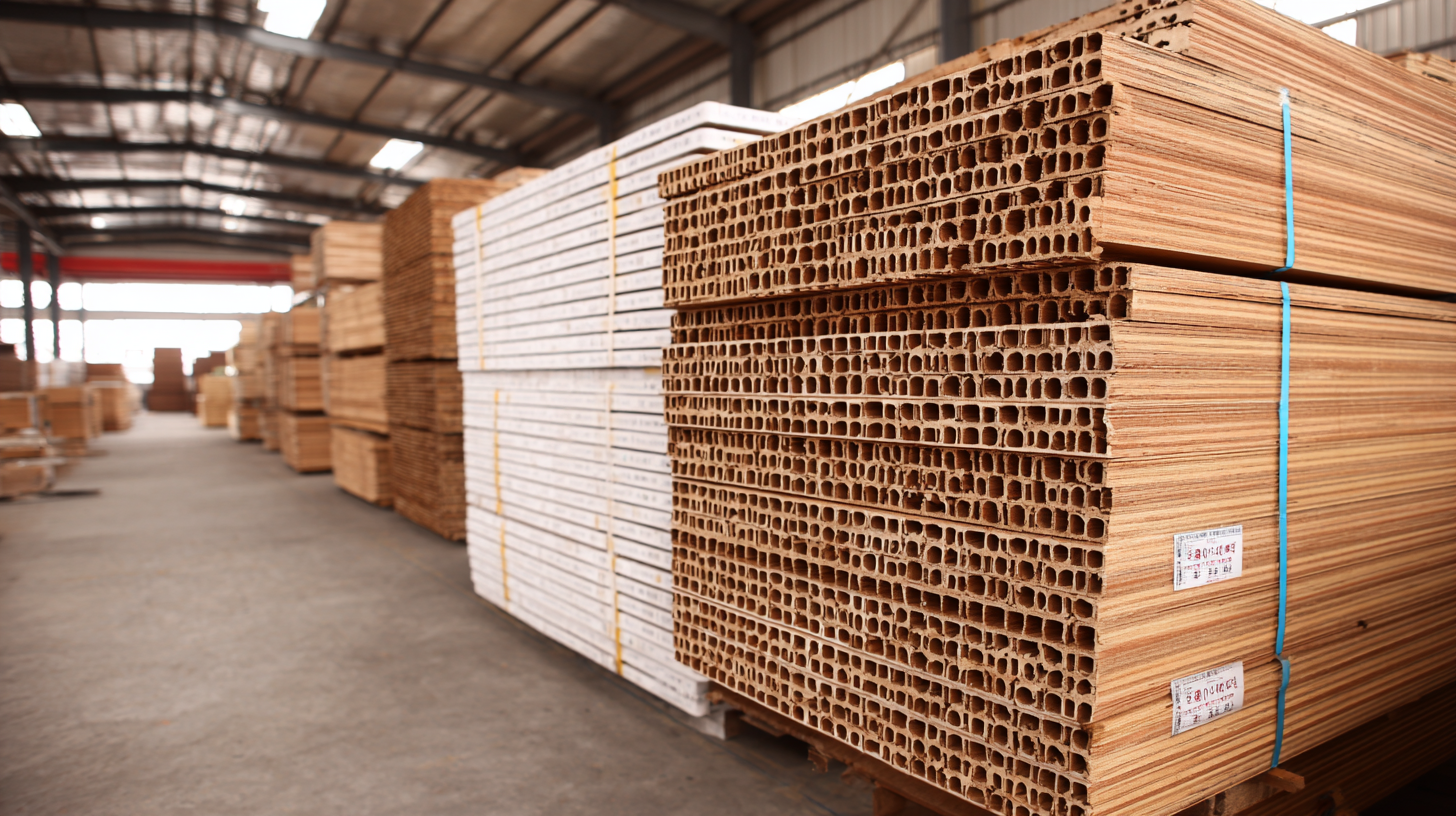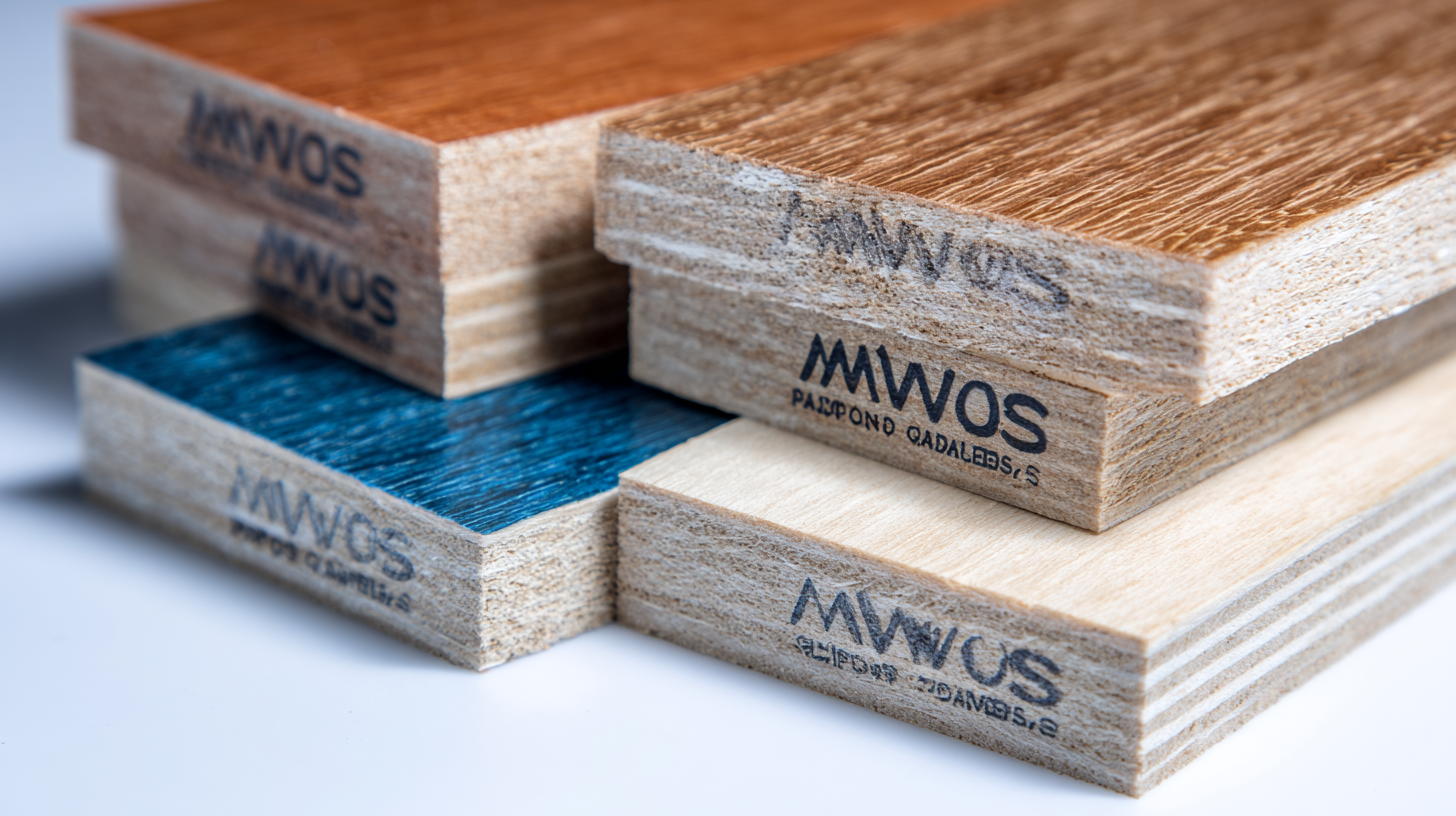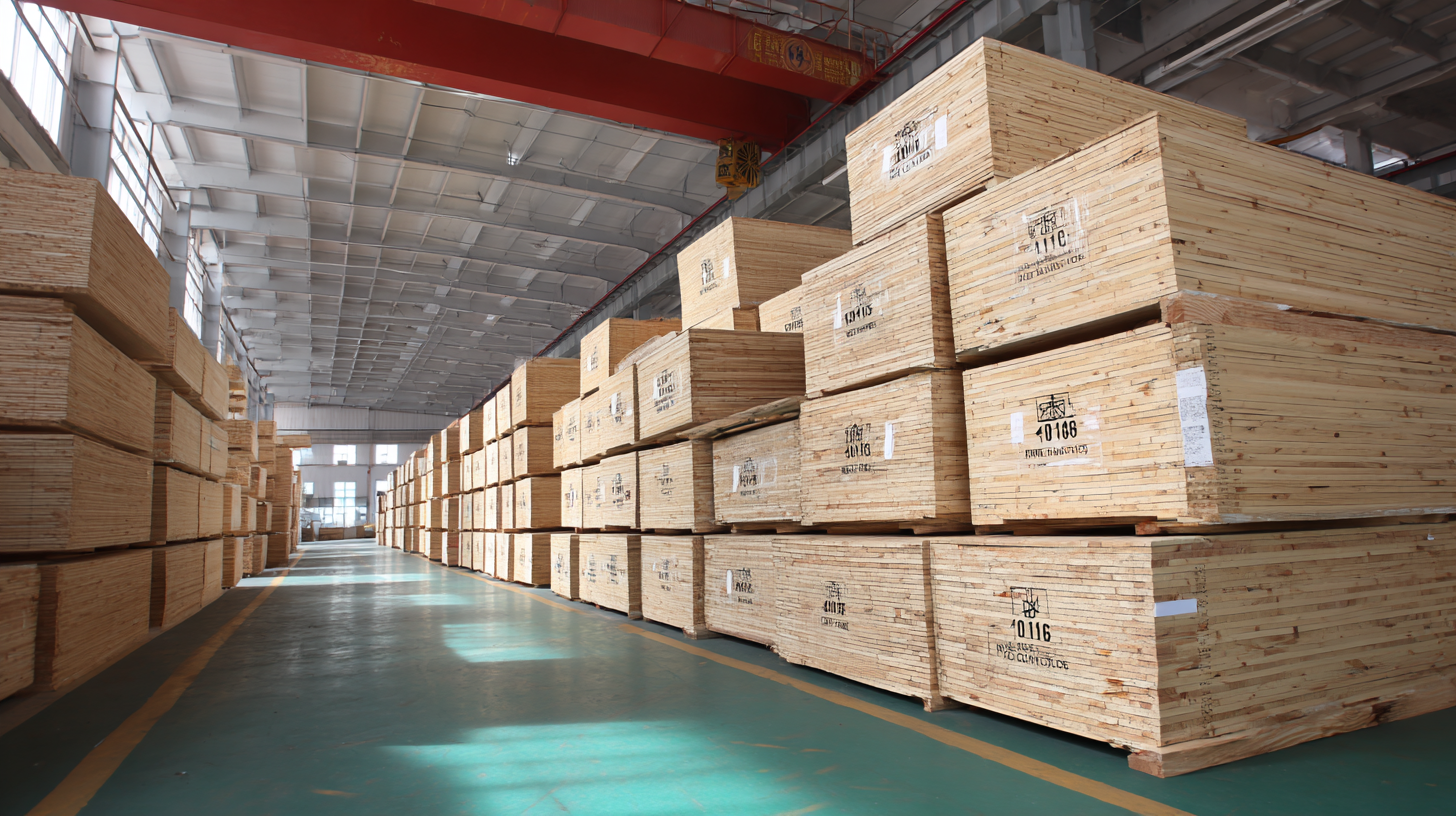


The global demand for high-quality packaging materials has surged, particularly for Hollow Board products, known for their lightweight, durability, and eco-friendliness. According to a recent report from Smithers Pira, the global protective packaging market is projected to reach $36.4 billion by 2024, highlighting a significant growth rate driven by industries seeking sustainable solutions.

Trustworthy Chinese manufacturers are emerging as leaders in this sector, renowned for their unmatched quality and reliability in producing Hollow Board products. With stringent industry certifications, these manufacturers not only meet but often exceed international standards, ensuring that businesses can rely on their products for safe and efficient packaging.
This blog will explore the best Hollow Board offerings from reputable Chinese manufacturers, discussing the latest certification requirements and providing a tutorial on how to choose the right product for your needs.
When it comes to the world of packaging and construction materials, hollow board products from China have emerged as a benchmark of excellence. These innovative boards are crafted from high-quality polypropylene, ensuring durability and lightweight characteristics that make them indispensable in various applications. From protective packaging to creative displays, the versatility of hollow board products has made them a preferred choice for manufacturers and consumers alike.
What sets Chinese manufacturers apart in the production of hollow board products is their commitment to stringent quality control measures and advanced technology. Many factories utilize automated processes that enhance precision and reduce waste, allowing for consistent production of top-notch products. Additionally, these manufacturers invest in research and development, continuously improving their offerings to meet the evolving needs of global markets. With a strong emphasis on reliability, businesses can trust that hollow board products sourced from reputable Chinese manufacturers not only fulfill their practical requirements but also reflect a commitment to sustainability and performance.
In the competitive landscape of manufacturing, particularly for hollow board products, trustworthy manufacturers distinguish themselves through several key attributes that provide a significant competitive edge. These manufacturers focus on unmatched quality and reliability, ensuring that their products not only meet but exceed industry standards. By investing in advanced technology and skilled labor, they create products that resonate with customer expectations and foster long-term partnerships.
Tips for choosing a reliable manufacturer include assessing their quality management systems and certifications. Look for manufacturers who have a proven track record of innovation and who actively engage in continuous improvement practices. Another important factor is their responsiveness to customer feedback, as this indicates a commitment to service and product excellence.
Moreover, establishing transparent communication channels can enhance collaboration and trust. Manufacturers who prioritize customer relationships and demonstrate flexibility in meeting bespoke requirements often stand out in the competitive arena. Ultimately, these practices not only ensure higher sales margins but also develop loyal customer bases that are crucial for sustained success in today’s market.
| Product Type | Material Used | Weight (kg) | Size (mm) | Average Lead Time (Days) | Quality Certification |
|---|---|---|---|---|---|
| Hollow Board A | PP (Polypropylene) | 5.0 | 1200 x 800 | 20 | ISO 9001 |
| Hollow Board B | PET (Polyethylene Terephthalate) | 6.5 | 1200 x 600 | 15 | CE |
| Hollow Board C | PVC (Polyvinyl Chloride) | 4.0 | 1000 x 1000 | 10 | FDA |
| Hollow Board D | HDPE (High-Density Polyethylene) | 7.2 | 1500 x 1000 | 25 | SGS |
Hollow boards are emerging as a sustainable solution in various industries due to their eco-friendly properties and the use of innovative, natural materials. Chinese manufacturers are at the forefront of this trend, producing hollow board products that contribute to sustainability by utilizing recycled materials and reducing waste. These boards not only minimize environmental impact but also offer impressive durability and versatility in construction and design applications.
Recent studies highlight the benefits of eco-friendly materials in construction, such as bioplastic wall panels made from plant-based wastes, which emphasize functional efficiency and resource conservation. Similarly, the exploration of algae-based materials for building solutions indicates a shift towards integrating natural, renewable resources into modern architecture, further aligning with the principles of sustainability. The movement towards using hollow boards made from environmentally conscious materials reflects a broader commitment to developing sustainable solutions that address both ecological concerns and consumer demands for high-quality products.
 The versatility of hollow boards has become increasingly evident across various industries, driven by their unique properties and applications. In the textile sector, hollow fibers are gaining traction for their lightweight and moisture-wicking attributes, making them ideal for **activewear** and other performance fabrics. These materials not only enhance comfort but also contribute to more sustainable textile production methods.
The versatility of hollow boards has become increasingly evident across various industries, driven by their unique properties and applications. In the textile sector, hollow fibers are gaining traction for their lightweight and moisture-wicking attributes, making them ideal for **activewear** and other performance fabrics. These materials not only enhance comfort but also contribute to more sustainable textile production methods.
In addition to textiles, hollow boards are emerging as a popular choice in construction and furniture manufacturing. For instance, high-quality moisture-resistant hollow particle boards have proven ideal for closet doors, interior wall partitions, and even ceilings. Their structural integrity and lightweight nature facilitate easier handling and installation, while also providing aesthetic benefits to living spaces. The growth in applications continues as industries seek innovative materials that combine functionality with design flexibility, ensuring that hollow boards remain at the forefront of **modern manufacturing trends**.
When sourcing hollow board products from China, identifying reliable suppliers is crucial to ensure you receive high-quality goods. One effective way to assess a manufacturer’s credibility is by checking their certifications and industry standards. Look for ISO certifications or specific product quality certifications that demonstrate their adherence to established quality protocols.
Tips: Always request samples before making a bulk order. This helps you evaluate the quality and durability of the products firsthand. Additionally, visiting the factory, if feasible, allows for a comprehensive assessment of their production capabilities and quality control processes.
Another key factor is communication. A trustworthy supplier should be responsive and transparent, readily providing information regarding their production timeline, pricing structure, and terms of service. Establishing a good rapport can also aid in smoother negotiations and ensure that any concerns you have are promptly addressed.
Tips: Use platforms that provide supplier ratings and reviews. These resources can give you insights into others’ experiences with the manufacturer, helping you gauge their reliability and service quality.
